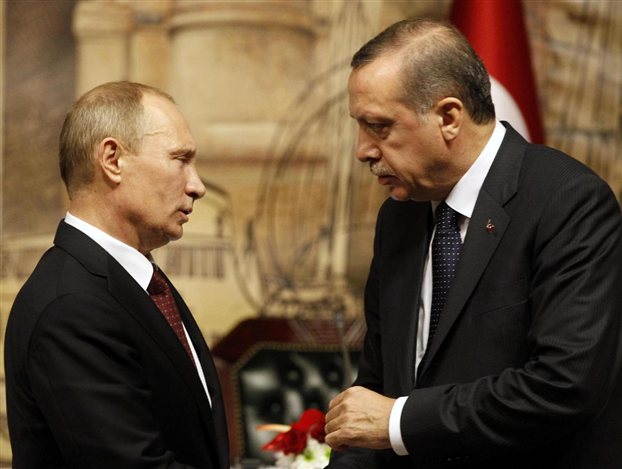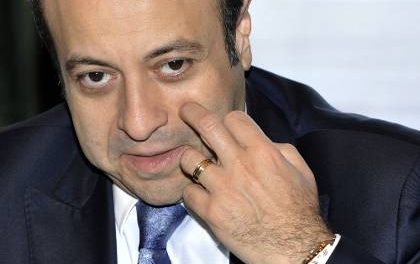Russia does not want a shooting war with Turkey. A trade war, maybe
By Economist
TWO portraits flanked by red roses and candles rest on a bench outside the Russian defence ministry. The makeshift memorial honours the soldiers killed last month by “accomplices of ISIL”—Russia’s new nickname for Turkey. After Vladimir Putin declared Turkey’s downing of a Russian jet near the Syrian border to be a “stab in the back”, a chill has descended over Russian-Turkish relations. Mr Putin accused Turkey’s Recep Tayyip Erdogan of protecting and profiting from the Islamic State’s oil trade; Mr Erdogan promised to resign if Russia could provide proof. On December 2nd Russia’s defence ministry presented information it says does just that. Mr Erdogan called it “slander”.
In a few seconds, the missile a Turkish plane fired last month undid years of diplomacy. Until the incident, the Kremlin saw Turkey as a strategic partner. Ordinary Russians knew it as a place to go on cheap beach holidays. Bilateral trade flourished, especially in energy, and Turkish construction firms helped build up Sochi for the winter Olympics. Last year Mr Putin paid Mr Erdogan perhaps his ultimate compliment, calling the Turkish leader “strong” for supporting ties with Russia even as the West had turned away because of the conflict in Ukraine.
Now, Turkey has suddenly become Russia’s main enemy. The Kremlin’s chief propagandist, Dmitry Kiselev, spent most of his Sunday night broadcast slamming the country, accusing Mr Erdogan of complicity with terrorists and fascists. Turkey “is now truly dangerous,” he warned viewers. At the climate summit in Paris this week, Mr Putin met in private with Barack Obama, but shunned Mr Erdogan. The Russian government has also unveiled economic sanctions against Turkey, focused on agriculture and tourism.
The tension is not limited to politics. Russia’s minister of sport instructed football clubs not to hire Turkish players during the upcoming transfer period. Dozens of Russian universities have cut ties with their Turkish counterparts, and Russian exchange students have been recalled from Turkish schools. Turkish trucks have been held up at the Russian border and lawyers have been fielding complaints from Turks in Russia who find themselves facing harassment from migration officers. “It’s happening all over, from Vladivostok to Kaliningrad,” says Murad Musayev, a Moscow-based attorney. “Collective responsibility according to nationality has become the rule.”
Both sides stand to lose from sanctions, though the economic effects will be more of a pin prick than a stab. Embargoes on Turkish food and bans on charter flights will hurt some Turkish firms. But Turkish exposure to Russia amounts to only 1% of GDP, says Fatma Melek, an economist at Akbank in Turkey. Losses related to sanctions will be even less. Russia, in turn, can expect a bump in inflation of 1%-1.5%, says Natalia Orlova, an economist at Alfa Bank in Russia. The embargo seems designed to look bolder on television than in reality. Turkish lemons, which account for as much as 90% of all lemons in major retail chains, were left off the list of banned products. Gas supplies, the pillar of bilateral trade, have so far remained untouched, though Turkish Stream, a joint pipeline project, looks likely to be frozen.
Relations between Ankara and Moscow will not improve any time soon. The shooting down of the plane has exposed deep and bitter disagreements over Syria that had been smouldering for some time. As Turkish-backed Syrian opposition groups take an increasingly anti-Russian stance, Syrian peace talks look ever more shaky, says Vitaly Naumkin, director of the Institute of Oriental Studies at the Russian Academy of Sciences. The conflict with Russia has also forced Turkish officials, who had often engaged in fiery anti-Western rhetoric in the past couple of years, to revise their priorities. “Now they understand that Turkey’s security interests are with the West, with NATO,” says Suat Kiniklioglu, director of the Centre for Strategic Communication, an NGO. “They’ve reverted to default mode.”



















